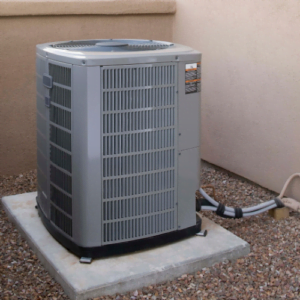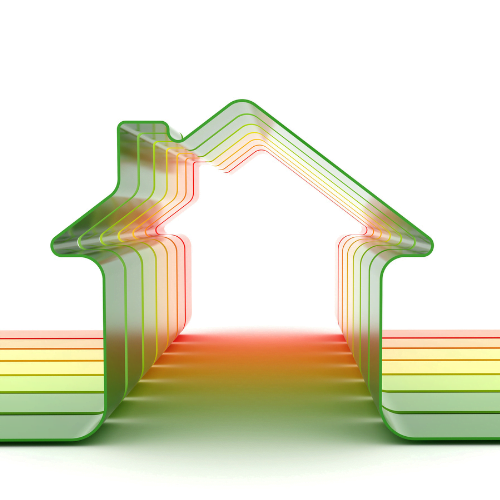The New SEER Rating HVAC, Explained
SEER2: It may sound like a movie sequel, but it’s actually an update in the HVAC energy efficiency world! Air conditioners and heat pumps are an important part of everyday life in Las Vegas; they have to be, with how high the desert temperatures can soar.
An energy-efficient air conditioner can save you money on the electric bill every month. With new SEER2 efficiency measurements now in place, here’s what you need to know to find the best-performing new air conditioner for your Las Vegas-area home.
What is the SEER Rating?
The SEER rating is a measure of how efficiently an HVAC system can cool your home during the cooling season. The higher the SEER rating, the more efficient the system is at converting energy into cooling power. In the past, the minimum SEER rating for new HVAC systems was 13. However, in recent years, there have been significant advancements in technology, leading to the introduction of higher SEER ratings.The original SEER acronym stands for Seasonal Energy Efficiency Ratio. It measures the cooling efficiency of an air conditioner or heat pump. A higher SEER number means more efficient cooling and less money spent on energy every month.
SEER ratings go as high as 30 (28.7 SEER2), but most homes have more affordable cooling units with a SEER from 15 (14.3 SEER2) to about 19 (18.1 SEER2). Most homes will never need a SEER at the highest end of the spectrum, and units with that level of efficiency are rare. Efficiency that high really only matters in very large buildings or commercial buildings that produce a lot of heat.
To determine the SEER, manufacturers closely measure the AC or heat pump in a controlled setting to ultimately divide the cooling output for a typical cooling season by the total electric energy input over the same period. Heat pumps undergo a similar testing process to determine their heating efficiency. Basically, SEER measures how much energy your air conditioner or heat pump uses to cool the home’s air for an entire season.
SEER and SEER2 are both calculated using the same ratio, but the way those numbers are measured has changed.
The New Measurement: All About the 2023 SEER Change
As of January 1, 2023, the Seasonal Energy Efficiency Ratio 2 (SEER2) went into effect. This new guidelines from the Department of Energy raises the minimum efficiency requirements that were already in place. More on why later, but let’s get into how this affects you first.
Why Does the SEER Rating Matter?
The SEER rating matters for several reasons. First and foremost, a higher SEER rating means greater energy efficiency. This translates to lower energy consumption and reduced utility bills. By investing in a high SEER rated HVAC system, homeowners can save money on their monthly energy costs in the long run. Secondly, a higher SEER rating also means a reduced environmental impact. Energy-efficient HVAC systems consume less electricity, resulting in lower greenhouse gas emissions. By choosing a system with a higher SEER rating, homeowners can contribute to a greener and more sustainable future. Furthermore, a higher SEER rating often indicates a more advanced and technologically superior HVAC system. These systems typically come with features such as variable-speed compressors, which allow for better temperature control and improved indoor comfort. Additionally, high SEER rated systems tend to have quieter operation, reducing noise pollution in the home.Do the HVAC SEER Rating Changes in 2023 Affect Me?
If you’re planning on getting a new air conditioning or heat pump installed, yes! Any new cooling systems must meet the SEER2 requirements listed above to be sold in the US, including in Las Vegas. Any knowledgeable HVAC technician will know the requirements and what units can and cannot be installed in Summerlin, Boulder City, Whitney, and the surrounding area.
Any cooling system installed before January 1, 2023, is not subject to these requirements. That means that if your unit was installed in 2022 or earlier and needs AC repair, you won’t be required to install a new SEER2-rated system. Even if your current air conditioner doesn’t meet the rating minimums, you can keep it until it needs to be replaced due to performance issues.
Understanding the New SEER Rating Scale
The new SEER rating scale ranges from 13 to 25, with higher numbers indicating greater efficiency. The U.S. Department of Energy has set a minimum SEER rating of 14 for new HVAC systems. However, it is important to note that the most efficient systems on the market can have SEER ratings of 20 or higher. It is also worth mentioning that the SEER rating is just one factor to consider when choosing an HVAC system. Other factors, such as the size of your home, climate conditions, and your specific cooling needs, should also be taken into account. Consulting with a professional HVAC contractor can help you determine the right SEER rating for your home.What SEER Rating Do I Need?
The new efficiency rating requirements differ by region. In the Southwest region, which includes Nevada, these are the minimum SEER2 requirements for new air conditioners sold and purchased after January 1, 2023:
|
Type of Cooling System |
Minimum Required SEER2 Rating |
|
Central AC and Heat Pumps Below 45,000 Btu Cooling Capacity |
14.3 SEER2 or higher |
|
Central AC and Heat Pumps At and Above 45,000 Btu Cooling Capacity |
13.8 SEER2 or higher |
|
Single-package Unit (Main Cooling and Heating Components Are All in One Unit Outside the Home) |
13.4 SEER2 or higher |
About SEER2
“SEER2” stands for Seasonal Energy Efficiency Ratio 2. Specifically, SEER2 is the total heat removed from the conditioned space during the annual cooling season. The new M1 testing procedure 


In Las Vegas, the average home is 1,900 square feet, requiring about 36,000 Btu of cooling capacity. Since that comes in below our 45,000 Btu limit, your minimum SEER2 is most likely 14.3.
However, when it comes to which SEER2 rating is best for your specific home, options vary! The size of your home, number of occupants, energy efficiency of your home, and more can impact the best SEER2 for you. An HVAC professional can recommend the unit that will maximize your efficiency while staying on budget. SCHEDULE NOW FREE ESTIMATE
Benefits of Upgrading to a High SEER Rated HVAC System
Upgrading to a high SEER rated HVAC system offers several benefits for homeowners. Firstly, it provides improved energy efficiency, resulting in lower energy bills. Over time, the cost savings can offset the initial investment of the system. Secondly, a high SEER rated system provides better indoor comfort. With advanced features like variable-speed compressors, these systems can maintain a consistent temperature and humidity level, ensuring optimal comfort throughout the year. Lastly, upgrading to a high SEER rated system can increase the value of your home. Energy-efficient features are highly sought after by homebuyers, and having a high SEER rated HVAC system can be a selling point when it comes time to sell your property.Conclusion
The new SEER rating is an important consideration when choosing a new HVAC system. With advancements in technology, homeowners now have access to more energy-efficient options that can save them money and reduce their environmental impact. By understanding the new SEER rating scale and its benefits, homeowners can make an informed decision and enjoy the comfort and efficiency of a high SEER rated HVAC system.









